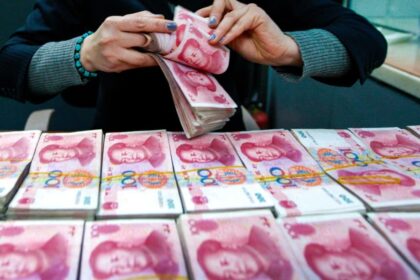Surge in stablecoin flows stirs alarms in Seoul
A sudden surge in stablecoin transfers between South Korea’s largest cryptocurrency platforms and a Cambodia based exchange has triggered emergency blocks and a regulatory sweep. Financial Supervisory Service data shows that transfers with Huione Guarantee reached 12.8 billion won in 2024, roughly 1,400 times the 2023 level. Regulators and lawmakers fear domestic platforms were exploited for money laundering and illegal remittances tied to criminal groups operating in Cambodia, where transnational online scams have harmed victims across the region, including Koreans.
- Surge in stablecoin flows stirs alarms in Seoul
- How the transfers ballooned between 2023 and 2025
- Who is Huione and why it faces US and UK action
- Cambodia’s scam hubs and the North Korea link
- How Korean exchanges and banks responded
- Why USDT became the rail of choice
- The enforcement toolkit and what it means
- What investors and users should watch
- Key Points
Korean exchanges have now shut off all transfers to the Cambodian venue. The spike unfolded as Huione Group, the Phnom Penh based parent of Huione Guarantee, came under sanction by authorities in the United States and the United Kingdom. Money movements did not stop at the turn of the year. From January through Oct. 20, 2025, the flow still reached 3.15 billion won, far above the baseline in 2023.
The episode brings together three pressure points: the rapid rise of dollar stablecoins for cross border remittances, the growth of Southeast Asia based online scam operations, and the expanding use of crypto rails by state backed hackers such as North Korea’s Lazarus group.
How the transfers ballooned between 2023 and 2025
By the official count, transfers between Korea’s five major exchanges and Huione Guarantee hit 12.8 billion won in 2024. Bithumb accounted for the largest exposure, jumping from 9.22 million won in 2023 to 12.4 billion won. Upbit, which had no such traffic in 2023, recorded 366.9 million won in inflows and outflows in 2024. Coinone saw about 1.2 million won, Korbit about 11.9 million won, and Gopax none. Flows continued into this year, totaling 3.15 billion won between Jan. 1 and Oct. 20, 2025, still vastly higher than the level seen in 2023.
Exchange by exchange footprint
In 2025 through Oct. 20, Bithumb handled roughly 2.18 billion won of the Cambodia linked transfers, followed by Upbit at about 523 million won, Korbit at about 443 million won, and Coinone at about 280,000 won. Industry sources say Upbit suspended transfers with Huione Guarantee in March 2025, while Bithumb, Coinone, and Korbit followed in May. Bithumb also blocked transactions with Byex, an exchange tied to Cambodia’s Prince Group, after receiving a small amount in late 2024. The flows were almost entirely denominated in Tether (USDT), with data indicating that about 99.9 percent of the 2024 transfers used the stablecoin.
Who is Huione and why it faces US and UK action
Huione Group is a Cambodia based financial conglomerate whose online marketplaces and payment services have drawn scrutiny from global regulators. In May 2025, the US Treasury’s Financial Crimes Enforcement Network (FinCEN) issued a finding under Section 311 of the USA PATRIOT Act that identified Huione Group as a primary money laundering concern. The agency also proposed a rule to prohibit US financial institutions from opening or maintaining accounts for Huione, a step designed to cut the group off from the US financial system. The public notice is available on the FinCEN website (link).
FinCEN reported that Huione Group laundered at least 4 billion dollars in illicit proceeds between August 2021 and January 2025. That total includes at least 37 million dollars from North Korean cyber heists and 36 million dollars from virtual currency investment scams often described as pig butchering schemes. The risks were exacerbated by poor know your customer and anti money laundering controls among the group’s components, according to the finding.
The network includes services branded as Huione Pay PLC, Huione Crypto, and a Chinese language marketplace that has also been referred to as Haowang. Huione Guarantee is believed to serve as a core venue for high risk virtual asset flows.
In its public finding, FinCEN summarized the measure and the rationale for the proposed cut off from the US financial system.
FinCEN identifies Cambodia based Huione Group as a financial institution of primary money laundering concern and has proposed to cut off its access to the US financial system.
British authorities have also sanctioned Huione Group for alleged laundering of digital assets linked to fraud and theft. Sanctions heighten the group’s isolation from formal banking, which can push transactions into higher risk channels that are harder to police.
Cambodia’s scam hubs and the North Korea link
Cambodia has emerged as a center for large scale online fraud complexes that run investment and romance scams, launder money, and traffic in stolen data. Investigators and compliance researchers have documented forced labor in compounds where individuals from across Asia are coerced to carry out cyber scams. These networks rely on fast settlement and liquid crypto markets to move proceeds, often through dollar stablecoins that can be cashed out across borders.
North Korea’s Lazarus group and associated actors have long used crypto to bypass sanctions. FinCEN traced tens of millions of dollars from North Korean cyber thefts through Huione linked services, reinforcing concerns in Seoul that some portion of the Korea to Cambodia stablecoin flows may have intersected with networks tied to state backed hacking. Analysts say marketplace operators have used mirror sites and new channels to continue processing funds even after takedowns, a pattern that complicates enforcement and extends the lifetime of these schemes.
Stablecoin issuers and exchanges have intervened at times. Tether, the issuer of USDT, has publicly said it can freeze funds connected to theft or sanctions when provided with sufficient evidence. That tool can disrupt cash out attempts and preserve evidence for law enforcement, though criminals often react by shifting to different wallets, platforms, or tokens.
How Korean exchanges and banks responded
Korean platforms moved to contain exposure once suspicious activity came into focus. Dunamu, the operator of Upbit, reported Huione linked activity to financial authorities, identified associated wallets, and blocked all transfers to the exchange. Bithumb, Coinone, and Korbit instituted full bans in early May 2025. The coordinated action shows how major platforms can use wallet blacklists and transfer controls to cut off venues that fail compliance checks.
Concerns extend to traditional finance. Cambodian branches of four Korean banks, Jeonbuk Bank, KB Kookmin Bank, Shinhan Bank, and Woori Bank, paid about 1.45 billion won in deposit interest to Prince Group, a Cambodian conglomerate suspected of links to criminal activity. Roughly 91 billion won in Prince Group deposits have been frozen under international sanctions. Lawmakers in Seoul argue that local branches may have been used as conduits for laundering and have called for a thorough investigation into branch level controls and reporting.
The Financial Services Commission has pledged preemptive account freezes aimed at proceeds of Cambodian criminal groups. The Financial Supervisory Service has acknowledged a lack of direct oversight over the overseas branches of Korean banks and indicated it will seek legislative changes to establish explicit authority, reporting obligations, and rapid information sharing for cross border risks.
Why USDT became the rail of choice
USDT is a dollar pegged stablecoin that trades on almost every major exchange and through thousands of over the counter brokers across Asia. It targets a one to one value with the US dollar and offers high liquidity, small spreads, and swift settlement. These features make it a favored choice for remittances and trading, and they also attract criminals who want speed and access.
Almost all of the transfers between Korean exchanges and Huione Guarantee in 2024 used USDT. From a criminal perspective, USDT can be sliced into many small transactions, moved quickly, and converted through peer to peer markets that rely less on bank accounts. From an enforcement perspective, the ledger is public, and issuers and exchanges can freeze or flag funds, but effective action often hinges on analytics, wallet attribution, and coordination across jurisdictions.
The enforcement toolkit and what it means
Section 311 of the USA PATRIOT Act allows the US Treasury to categorize a foreign institution as a primary money laundering concern and then restrict its access to the US financial system. Once a final rule is in place, dollar clearing becomes difficult or impossible. Global banks and payment providers tend to derisk exposure, which raises the cost of operating for the targeted network and those who transact with it.
Seoul can reinforce defenses through several steps. Virtual asset service providers can expand suspicious transaction reporting and improve Travel Rule compliance so originator and beneficiary information travels with crypto transfers. Regulators can formalize preemptive account freezes for sanctioned counterparties, tighten screening of overseas branches, and increase direct cooperation with Cambodian authorities. Data sharing with foreign regulators and private blockchain analytics teams can close gaps that transnational groups have exploited.
What investors and users should watch
Retail users and over the counter brokers should avoid transfers to or from counterparties that appear on sanctions lists or have been flagged by exchanges. Exchanges and payment firms should apply enhanced due diligence when funds touch high risk venues, monitor wallet clustering that links to known scam networks, and maintain clear procedures for freezing and reporting suspicious activity.
- Check whether a destination wallet has been linked to Huione or other sanctioned entities before sending funds.
- Be wary of requests to convert large amounts into USDT for quick cross border delivery, especially when the counterparty insists on off exchange deals.
- Use on chain analytics alerts where available to detect exposure to known scam clusters or mixers.
- Respond promptly to exchange notices about blocked transfers or wallet screening hits, and provide documentation when asked.
Key Points
- Transfers between Korea’s five major exchanges and Cambodia’s Huione Guarantee soared to 12.8 billion won in 2024, about 1,400 times the 2023 level.
- Flows persisted in 2025, reaching 3.15 billion won by Oct. 20, despite bans enacted by Korean platforms.
- Bithumb accounted for most of the 2024 activity, while Upbit and other exchanges imposed full blocks in March and May 2025.
- About 99.9 percent of the Korea to Cambodia flows used Tether (USDT), a dollar pegged stablecoin favored for fast settlement and liquidity.
- US Treasury’s FinCEN identified Huione Group as a primary money laundering concern and proposed cutting it off from the US financial system under Section 311.
- FinCEN found at least 4 billion dollars in illicit flows through the Huione network since 2021, including funds tied to North Korean cyber thefts and online investment scams.
- Korean regulators plan preemptive account freezes and legislative changes to strengthen oversight of bank branches overseas and crypto platforms at home.
- Four Korean banks’ Cambodia branches paid 1.45 billion won in interest to Prince Group, whose 91 billion won in deposits are now frozen under sanctions.












